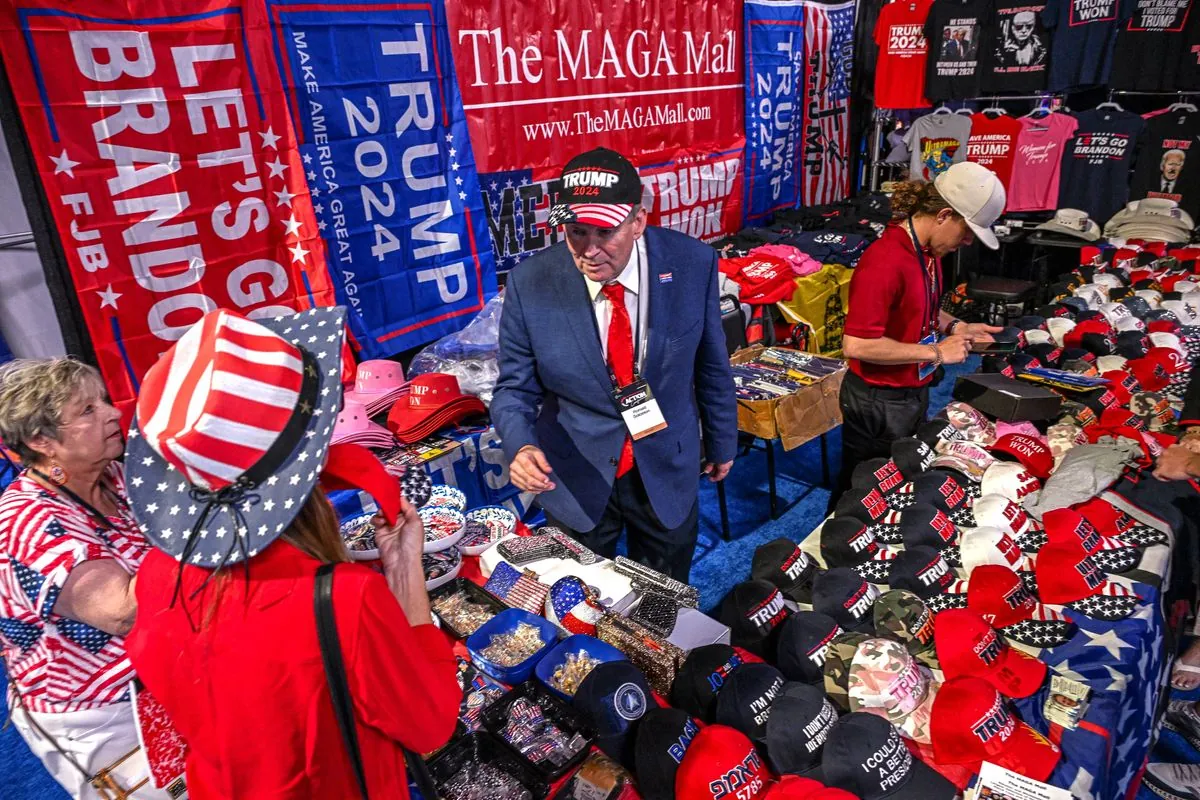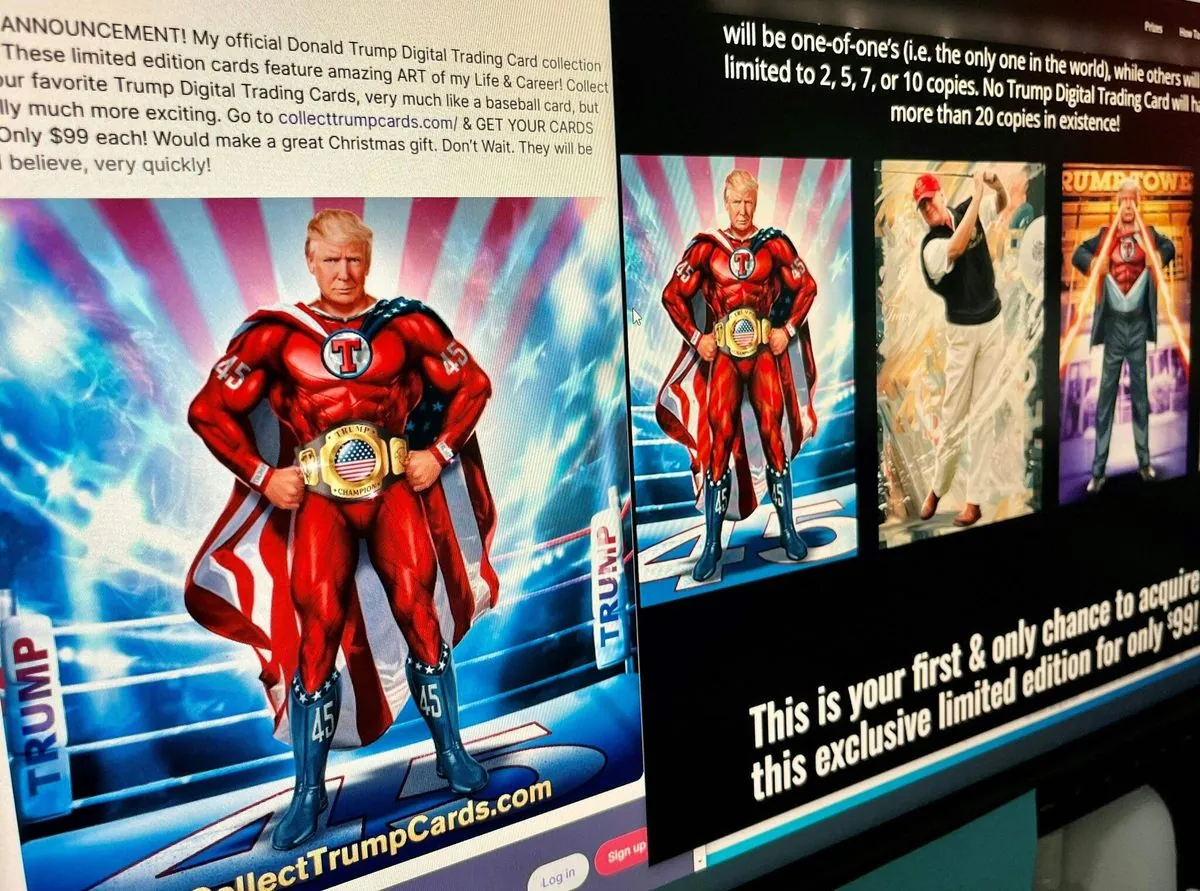Trump's Unprecedented Monetization of Presidential Candidacy Raises Concerns
Former President Trump's recent sales of digital trading cards and books for personal profit during his campaign have sparked debate. Critics argue this unprecedented monetization blurs ethical lines in politics.

As the 2024 presidential election approaches, Donald Trump has intensified his efforts to monetize his candidacy through various merchandise sales. In late August, less than 10 weeks before the election, Trump announced the release of new digital trading cards priced at $99 each. These cards, featuring images of Trump dancing and holding bitcoins, offer additional perks for bulk purchases.

Trump's marketing strategy extends beyond digital collectibles. On September 3, he promoted a book of self-portraits on Truth Social, priced at $99 for unsigned copies and $499 for autographed versions. Notably, proceeds from these sales benefit Trump's personal ventures rather than his campaign.
This approach to campaign merchandising is unprecedented in American political history. Don Fox, former general counsel for the U.S. Office of Government Ethics, stated, "There's no precedent in history at all, and certainly not in modern history, for somebody who has monetized the office or running for office of president the way he has."
Trump's business activities during his candidacy include:
- Selling digital trading cards
- Promoting personal books
- Licensing his name for various products
- Selling campaign merchandise at higher prices through his company website
Critics argue that this blurs the line between personal business interests and political campaigning. Ammar Moussa, director of rapid response for the Harris campaign, commented, "One of the many arguments we make against Trump is that he cares solely about himself and his bottom line more than anything else, including the American people."
Trump's team defends his actions, stating that he "left his multibillion-dollar real estate empire to run for office" and "donated his presidential government salary." However, some campaign advisers privately express concerns about the ethical implications of these business practices.
Historically, former presidents have earned money through book deals, speaking engagements, and board memberships. The concept of presidential libraries, initiated by Franklin D. Roosevelt in 1939, has also provided a means for former presidents to raise funds. However, Douglas Brinkley, a presidential historian at Rice University, notes that Trump's approach is unique: "In the sense of marketeering themselves in the way that Trump does, selling bobbleheads and MAGA gear, it's a new lurch into campaign capitalism and profiteering off the White House."
Trump's merchandise empire includes various products:
- Signed Bibles
- Gold necklaces
- Cryptocurrency cards
- Branded sneakers
- MAGA hats and flags
The ethical concerns surrounding these business practices are compounded by the fact that Trump's private company often sells similar items at higher prices than his campaign. For instance, a "Make America Great Again" hat costs $55 on his company website but only $40 through the campaign.
As the election draws near, the debate over the appropriateness of Trump's business activities continues. While some view it as a savvy marketing strategy, others see it as a potential conflict of interest that could influence public perception and voting decisions.
"President Trump left his multibillion-dollar real estate empire to run for office, donated his presidential government salary, and was the first President to actually lose net worth while serving in the White House. Unlike most politicians, President Trump didn't get into politics for profit. He ran for president because he genuinely loves the people of this country and wants to make America great again."
The unprecedented nature of Trump's business activities during his candidacy raises important questions about the intersection of personal profit and public service in American politics. As voters prepare to cast their ballots, they must weigh these factors alongside policy positions and leadership qualities.


































